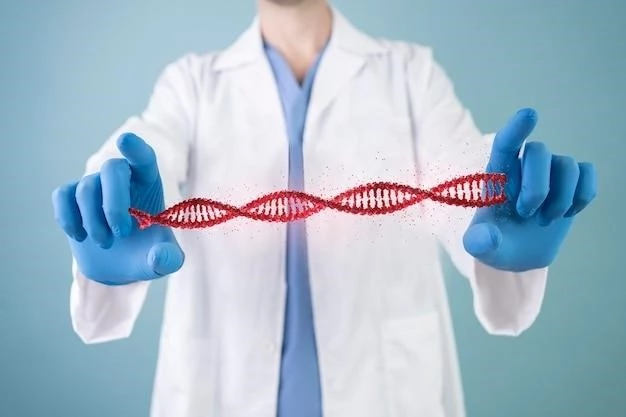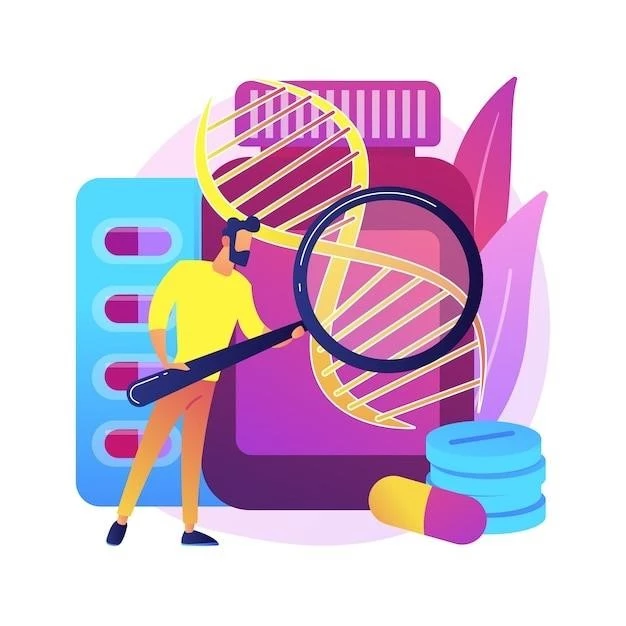Chromosome 2 Deletion Syndrome is a rare genetic disorder caused by the deletion of a section of chromosome 2.
This deletion can lead to various physical and developmental challenges in affected individuals.
Understanding the genetic basis of this syndrome is crucial for proper diagnosis and management.
Definition and Causes of Chromosome 2 Deletion Syndrome
Chromosome 2 Deletion Syndrome is characterized by the absence of certain genes on chromosome 2.
This deletion can occur spontaneously or be inherited from a parent with a balanced translocation involving chromosome 2.
The exact causes of this deletion syndrome are not fully understood, and further research is needed to elucidate its underlying mechanisms.
Impact on Physical and Mental Development
Chromosome 2 Deletion Syndrome can have profound effects on both physical and mental development.
Individuals may experience delays in milestones, intellectual disabilities, facial abnormalities, and other health issues.
Early intervention and comprehensive care are essential to address the challenges associated with this syndrome.
Genetic Testing for Chromosome 2 Abnormalities
Genetic testing plays a crucial role in diagnosing Chromosome 2 abnormalities through analysis of DNA.
Various tests, such as karyotyping and FISH, can identify deletions or mutations in Chromosome 2.
Early detection through genetic testing enables personalized treatment and care planning.
Types of Genetic Tests Available
Genetic testing options for Chromosome 2 abnormalities include karyotyping, FISH analysis, and chromosomal microarray.
These tests help identify deletions, duplications, or rearrangements in Chromosome 2, providing valuable diagnostic information.
Consulting with a genetic counselor can help determine the most appropriate test based on individual needs and symptoms.
Importance of Early Detection
Early detection of Chromosome 2 abnormalities is crucial for timely intervention and personalized treatment planning.
Identifying these genetic changes early can lead to better outcomes and improved quality of life for affected individuals.
Genetic testing at an early stage allows healthcare providers to implement appropriate support and management strategies promptly.
Treatment Options for Chromosome 2 Disorders
Managing Chromosome 2 Disorders involves a multidisciplinary approach tailored to individual needs.
Treatment may include medical interventions, therapies, and ongoing support to address specific challenges.
Early diagnosis and proactive treatment strategies can significantly impact the overall prognosis.
Medical Interventions
Medical interventions for Chromosome 2 Disorders focus on addressing specific health issues and developmental delays.
Treatment may involve surgeries to correct physical abnormalities, medications to manage symptoms, and regular monitoring to track progress.
A comprehensive healthcare team collaborates to provide individualized care and optimize the overall well-being of affected individuals.
Therapies and Supportive Care
Therapies such as physical, occupational, and speech therapy play a vital role in enhancing the quality of life for individuals with Chromosome 2 Disorders.
Supportive care focuses on addressing cognitive and behavioral challenges, promoting independence, and providing emotional support to both the individual and their family.
A holistic approach to care aims to optimize functioning and overall well-being, improving long-term outcomes for those with this genetic condition.
Research Advances in Chromosome 2 Related Diseases
Ongoing research into Chromosome 2 related diseases aims to deepen our understanding of the genetic mechanisms involved.
Advancements in genetic technologies and therapies offer hope for improved outcomes and better quality of life.
Exploring novel approaches may lead to breakthroughs in the diagnosis and treatment of these conditions.
Current Studies and Findings
Current research focuses on elucidating the specific genes and pathways affected by Chromosome 2 deletions.
Studies aim to uncover correlations between genetic variations and clinical manifestations to guide targeted interventions.
Emerging findings may provide insights into potential therapeutic targets and individualized treatment strategies for affected individuals.
Potential Future Breakthroughs
Future breakthroughs in research may lead to a deeper understanding of Chromosome 2 related diseases.
Advancements in gene editing technologies and precision medicine hold promise for targeted therapies tailored to individual genetic profiles.
Potential breakthroughs could revolutionize the diagnosis, management, and outcomes for individuals affected by Chromosome 2 variations.
Living with Chromosome 2 Trisomy
Individuals with Chromosome 2 Trisomy face unique challenges that require specialized care and support.
Understanding the impact of an additional copy of Chromosome 2 on health and development is crucial.
Optimal management and resources enhance the well-being and quality of life for individuals with this condition.
Challenges Faced by Individuals and Families
Individuals with Chromosome 2 variations may experience physical, cognitive, and developmental complexities.
Families often encounter emotional, financial, and logistical challenges in providing care and support.
Navigating healthcare systems and accessing specialized resources can be demanding, highlighting the need for comprehensive support services.
Coping Strategies and Quality of Life Considerations
Implementing coping strategies and fostering resilience can enhance the well-being of individuals with Chromosome 2 variations.
Quality of life considerations, such as social support, inclusion, and access to appropriate therapies, are essential for overall health.
Promoting a positive environment and empowering individuals and families contribute to improved quality of life and long-term outcomes.
Symptoms and Diagnosis of Chromosome 2 Anomalies
Chromosome 2 anomalies can present with a range of physical, cognitive, and developmental symptoms.
Diagnosis involves genetic testing, physical examinations, and evaluation of clinical manifestations.
Early recognition and accurate diagnosis are essential for appropriate management and support planning.
Common Signs and Symptoms
Common signs of Chromosome 2 anomalies include developmental delays, intellectual disabilities, and facial abnormalities.
Individuals may exhibit growth issues, heart defects, and gastrointestinal problems, impacting overall health.
Recognizing these symptoms early facilitates timely interventions and comprehensive management strategies to address the complex needs of affected individuals.
Diagnostic Procedures and Testing
Diagnosis of Chromosome 2 anomalies involves genetic testing methods such as karyotyping and chromosomal microarray.
Physical exams, imaging studies, and laboratory tests help in assessing associated abnormalities and confirming the diagnosis.
A detailed diagnostic workup enables healthcare providers to formulate tailored treatment plans and provide appropriate support to individuals with Chromosome 2 variations.

Management Strategies for Chromosome 2 Deletion
Effective management of Chromosome 2 Deletion involves a comprehensive approach addressing medical needs and supportive care.
Individualized treatment plans, therapies, and ongoing monitoring are key elements of managing this genetic condition.
Collaboration between healthcare professionals and families is essential for optimizing outcomes and quality of life.
Medical Management Approaches
Medical management of Chromosome 2 Deletion involves addressing specific health issues with tailored interventions.
Treatment may include surgical procedures, medications, and specialized care to manage associated medical conditions.
A multidisciplinary healthcare team collaborates to provide holistic care and support to individuals with Chromosome 2 Deletion٫ promoting optimal well-being.
Therapeutic and Behavioral Interventions
Therapies and behavioral interventions play a vital role in addressing challenges associated with Chromosome 2 Deletion.
Speech therapy, occupational therapy, and behavioral interventions help improve communication, motor skills, and social interactions.
Personalized interventions and support programs empower individuals with Chromosome 2 variations to enhance their overall quality of life and well-being.
Support Resources for Individuals with Chromosome 2 Variations
Accessing specialized support resources can greatly benefit individuals with Chromosome 2 variations.
Support groups, counseling services, and educational resources offer valuable assistance and guidance.
Providing a network of support and information, these resources empower individuals and their families.
Educational and Community Resources
Educational resources offer information and guidance to individuals, families, and healthcare professionals about Chromosome 2 variations.
Community resources provide valuable support, networking opportunities, and educational programs to enhance awareness and understanding.
Collaborating with these resources empowers individuals with Chromosome 2 variations to access comprehensive care and services for improved quality of life.
